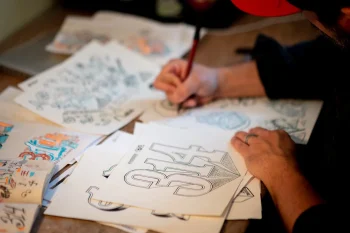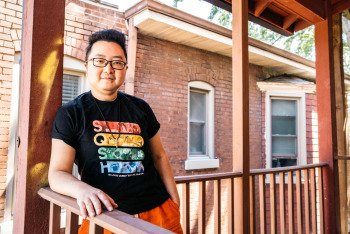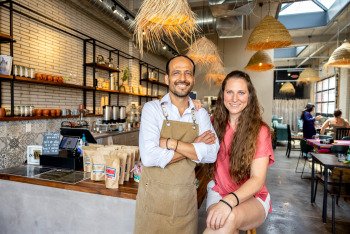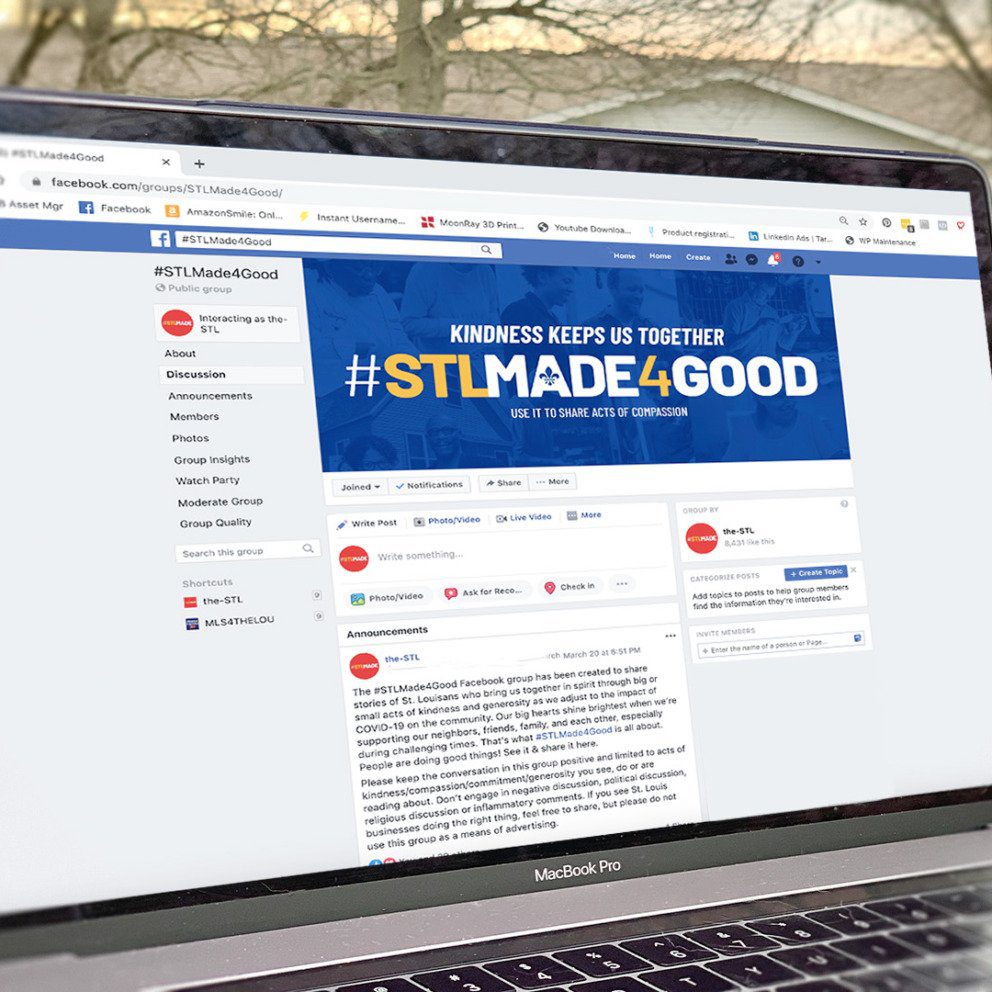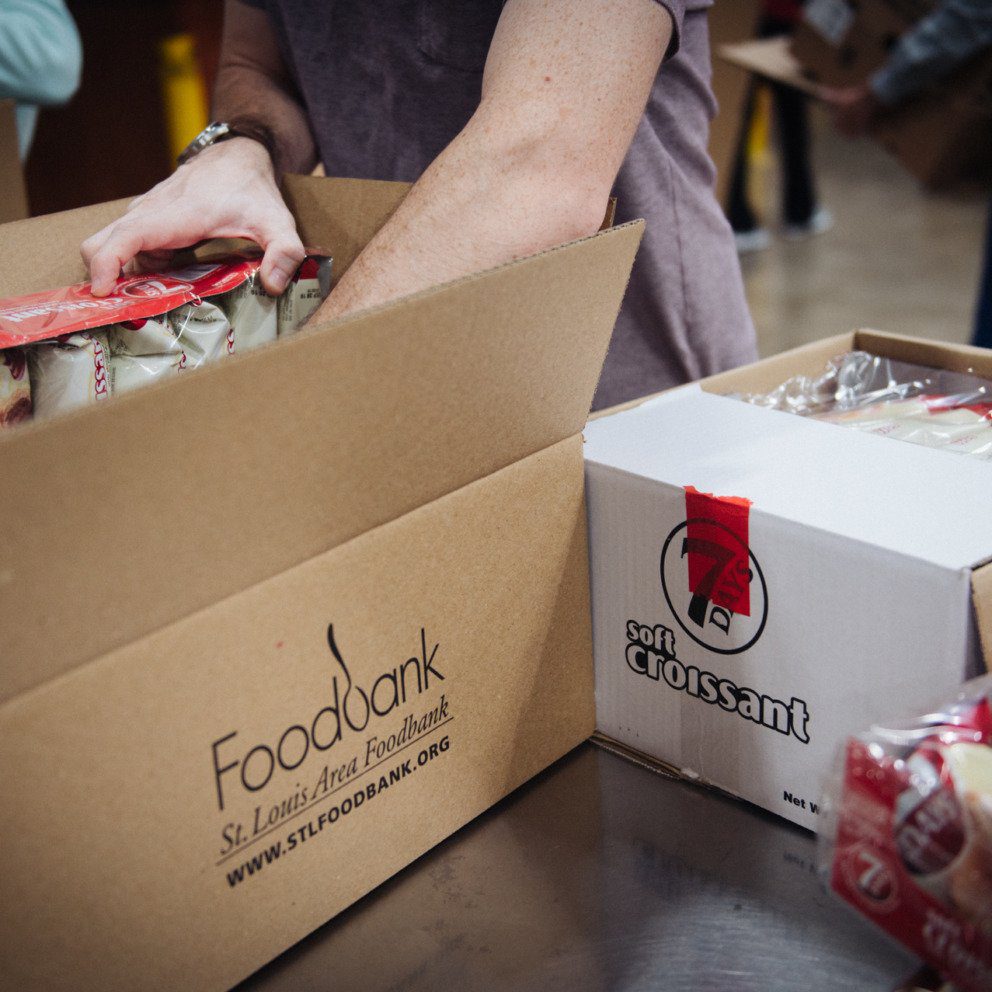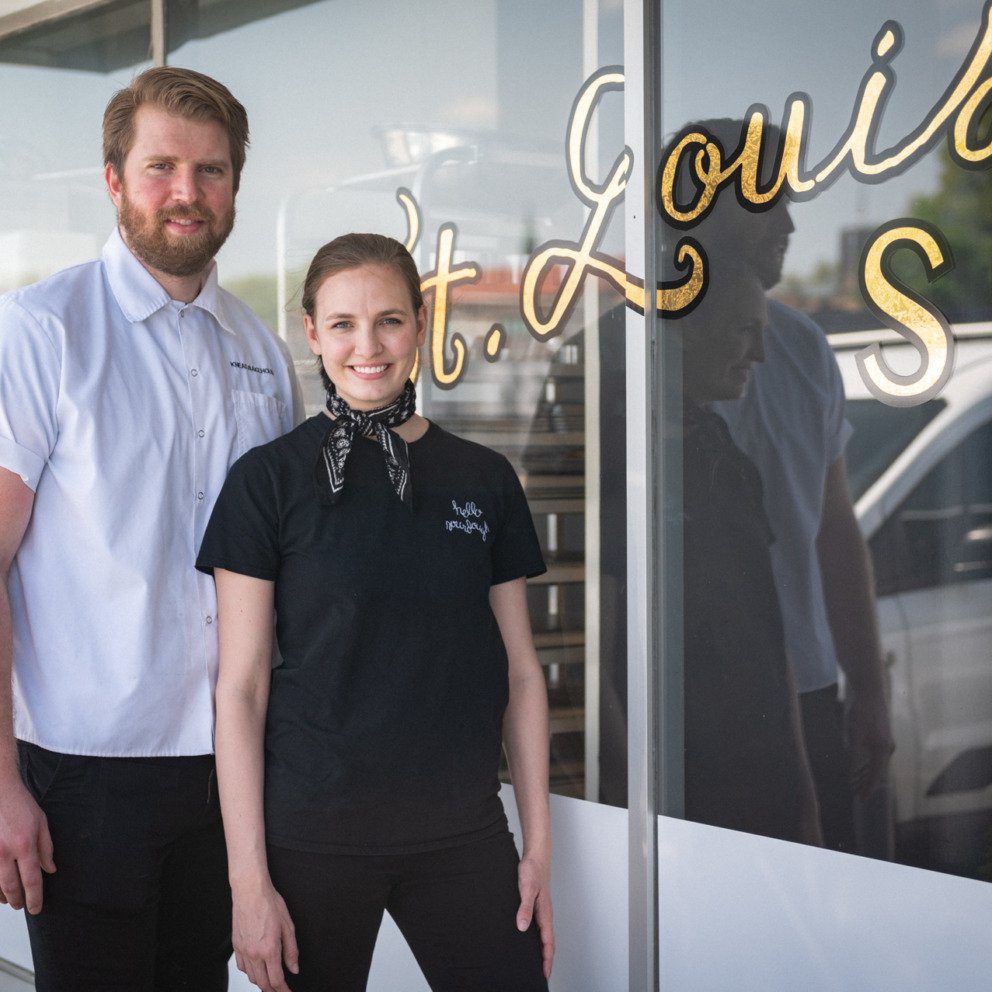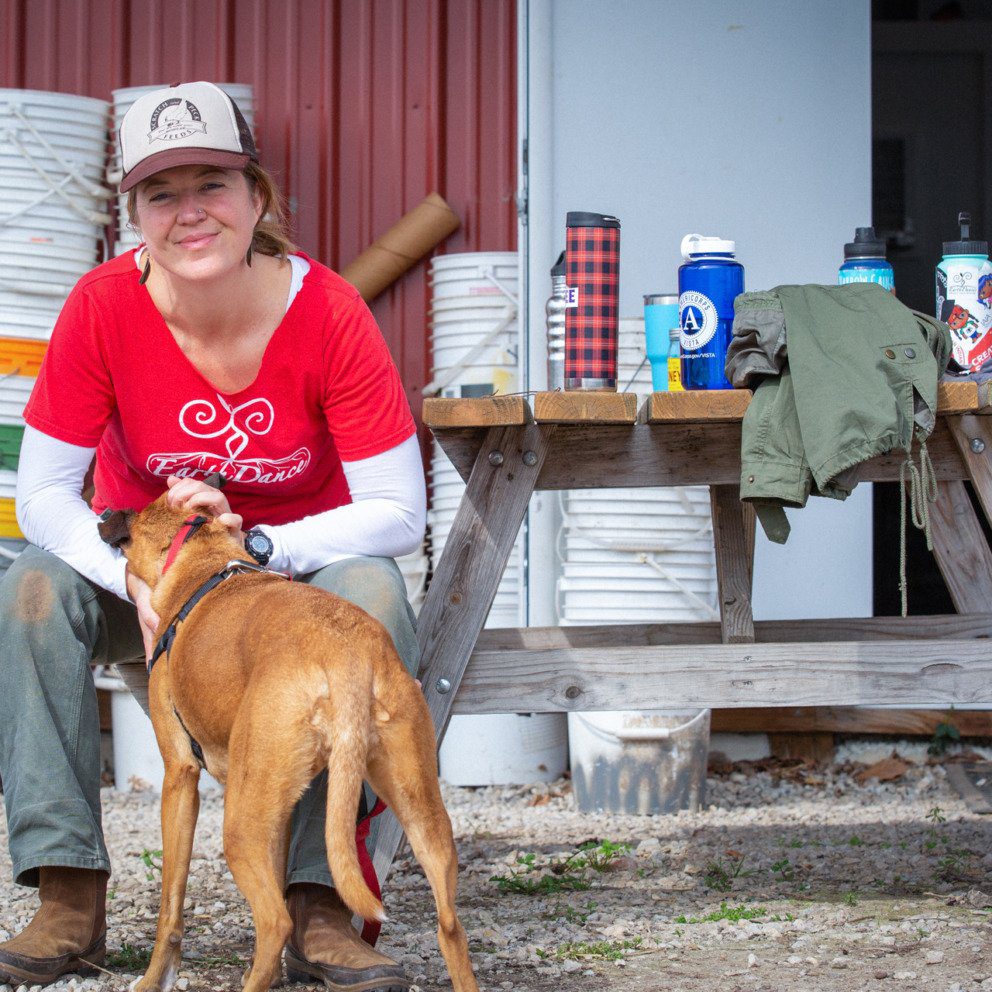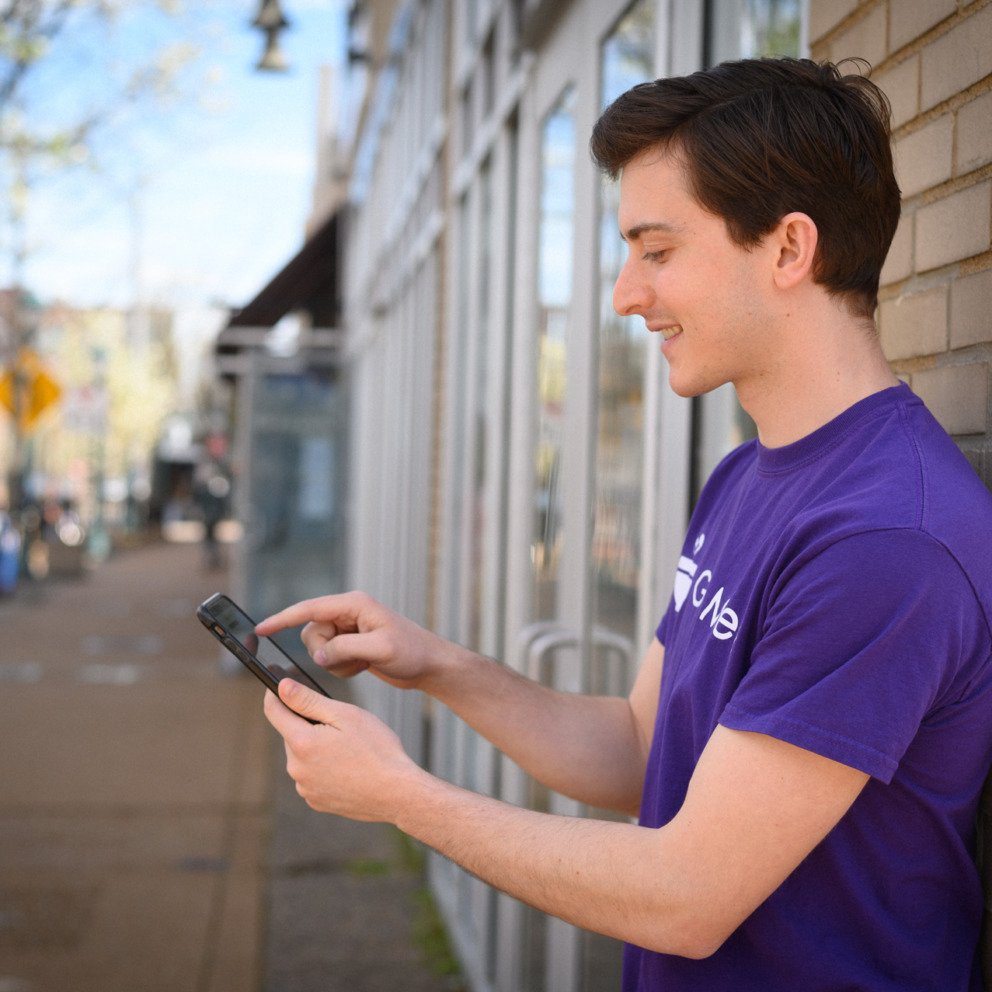Power Drive
28 communities around the region joined together to donate nearly 15,000 pounds of food and personal care items to the St. Louis Area Foodbank.
When Scott Huegerich decided to organize a food drive to help with COVID-19 hunger relief efforts, he had no idea what the response would be. Some people near him in Oakville probably would contribute, he thought. Maybe a few friends in other subdivisions and towns, too.
But how much could they really collect for the St. Louis Area Foodbank in just 12 days, he wondered?
The answer: enough to fill four large Missouri National Guard trucks, thanks to a massive effort throughout the entire St. Louis region.
“I’m just completely blown away. Everybody was so incredibly happy and felt like they were really making a difference,” he says. “There was just an incredible amount of love and happiness there.”
It all began April 20 when Huegerich brought up his idea to friends from nearby neighborhoods and launched a Facebook group to organize efforts. People were hitting hard times, he reasoned, and he wanted to do something that could have a meaningful impact within the region.
Indeed, Chad Davis of St. Louis Public Radio reports that as the coronavirus pandemic wears on, more residents in the St. Louis region are turning to foodbanks, pantries and other charitable outlets for relief after losing jobs, school lunches and other resources. “What we’re seeing right now with the COVID-19 virus is that people who are already struggling with food insecurity are struggling even more to make ends meet,” Foodbank president and CEO Meredith Knopp told Davis in an interview.
Naming his initiative the St. Louis Fill Up the Pickup Challenge, Huegerich suggested that volunteer neighborhood captains safely gather non-perishable goods in their area for two weeks and then haul everything in large vehicles — pickup trucks, he’d envisioned — to a drop zone at Aligned Media, Huegerich’s production company in Midtown, on May 2. From there, the St. Louis Area Foodbank would collect the items and prepare them for distribution across the metro area.
Huegerich knew that St. Louisans are noted for stepping up when help is needed and that the donation drive had the potential to be big. But he found out just how big when volunteers from zip codes throughout the region joined the Facebook group and committed to collecting items for the Foodbank. St. Peters. Normandy. Maplewood. Word spread like fire, and people began offering services in addition to food. A Midtown church provided its parking lot to extend the collection zone. One person designed a flyer for volunteers to print and distribute.
The organic growth and passion of the volunteers grew so much that the Foodbank asked the Missouri National Guard to use their large trucks for donation transport on the big day. It was the right decision, as pickup truck after pickup truck lined up to unload boxes of donations at the drop zone in Midtown.
All told, masked organizers and Guard members stacked nearly 15,000 pounds of food and personal care items into four huge Guard vehicles and contributed nearly $1,500 in funds before corporate match programs. It was enough for the Foodbank to provide nearly 17,000 meals to those in need.
The effort strengthened Huegerich’s belief that St. Louisans can make a huge impact when communities collaborate.
“There are names of communities on that list that you don’t normally see working together, like Creve Coeur and Festus and Normandy and Oakville — neighborhoods that seemingly don’t have anything in common other than the fact that they have a shared compassion for people in our region,” Huegerich says. “It’s just incredibly cool to think that so many diverse people are coming together to do something like this.”
Buoyed by the success of the donation drive, participants already are talking about organizing other large charitable efforts this year and beyond as COVID-19 continues to take its toll on area residents.
“There’s always something new to kind of give you a little bit of hope,” Huegerich says. “I hope the region looks at this as the ability for citizens to come together to dream big and do something good. And if we can start to act regionally and care for our neighbors regionally, I think that’s really, really gonna help the entire St. Louis metropolitan area.”

